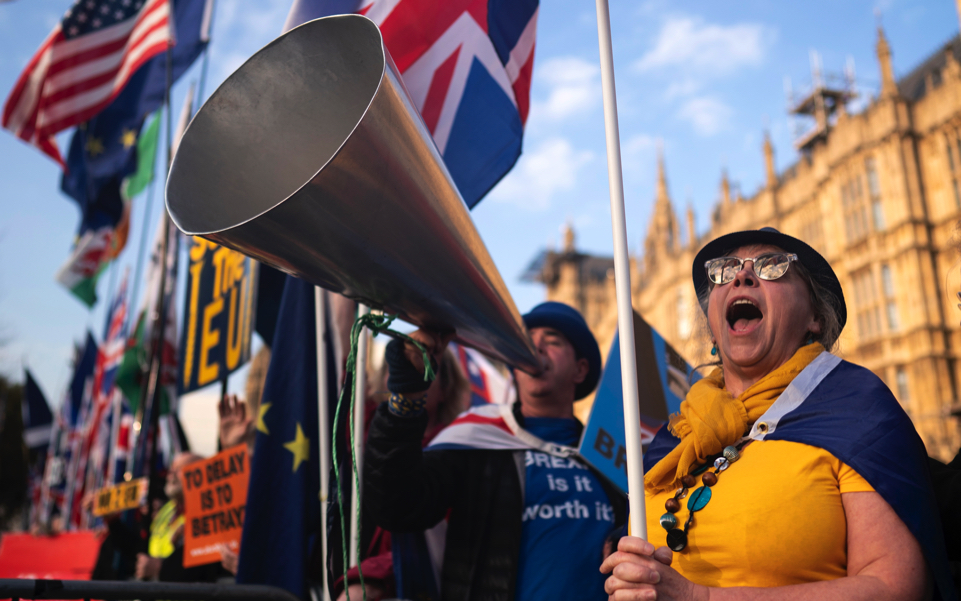Brexit and democracy

The original deadline for Britain’s exit from the European Union is expected to pass Friday without anything more dramatic than the acknowledgment that Britain’s politicians need more time to solve a problem that is unsolvable. Whether Brexit is postponed until April 12 or May 22, EU officials and the 27 other member-states have been preparing for the day after a no-deal exit; they are expected to demand that Britain pay a 39-billion-euro bill for leaving, that Northern Ireland remain in the customs union and single market, and that citizens’ rights and social security arrangements be protected. Difficult as they are, though, these issues are not as profound as the great question that Brexit poses: How democratic is it when a single yes-no vote, without any appeal process, determines a whole nation’s fate for many years, disregarding the votes, arguments and fears of those opposed to it?
The question goes to the heart of politics and of our European identity. European Council President Donald Tusk has put the situation in its true perspective. “We should be open to a long extension if the UK wishes to rethink its Brexit strategy,” he told European Parliament members on Wednesday. “You cannot betray 6 million people who signed the petition to revoke Article 50, the 1 million people who marched for a People’s Vote, or the increasing majority of people who want to remain in the European Union. They may feel that they are not sufficiently represented by the UK Parliament, but they must feel that they are represented by you in this chamber. Because they are Europeans.” Angie Hobbs, professor of philosophy at the University of Sheffield, tweeted: “Thank you @eucopresident! I currently feel better represented by EU than by either our disastrous Cabinet or Shadow Cabinet, and I am sure I am far from alone.” (This feeling was shared by many in Greece, when we felt that our place in Europe was being jeopardized by foolhardy politicians.)
And yet, many in Britain and the EU argue that stopping Brexit would be “a denial of democracy.” Democracy, though, succeeds by constantly adapting to change; it grows stronger when those in power are generous, magnanimous. It was, after all, a second vote by the men of ancient Athens that spared Mytilene after the decision to destroy it. If Britain’s politicians do not dare protect their own people by allowing a second vote, at least some European leaders are right to honor the spirit of democracy, offering a way out for the British.





